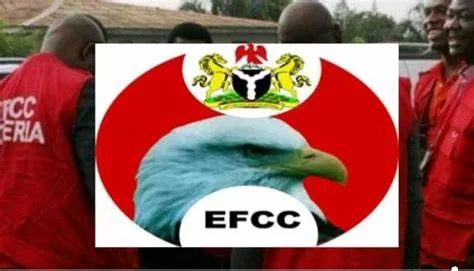
Nigerians have taken to social media to criticise the Economic and Financial Crimes Commission, alleging the agency is deliberately failing to prosecute the All Progressive Congress (APC) politicians accused of corruption.
Journalist Jude Bela, in a post on X, wrote, “There’s a higher chance of you getting struck by lightning than the EFCC ever prosecuting an allegedly corrupt politician who is an APC member.
He added that even invoking God’s name would not compel the agency to act against those accused of looting public funds.
“Not even swearing in the name of God will get them to go after the guys responsible for looting public funds,” he said.
Jude Bela Credit: Buy me a coffee
His post triggered widespread online debate, with users questioning whether the EFCC has become an extension of the ruling party rather than an independent anti-graft body.
@DeDinzy007 argued that Nigerians themselves must force accountability, warning that waiting passively will bring no change.
@codeVeegan lamented that society often deserves the leadership it tolerates, implying that selective enforcement of laws is entrenched under APC rule.
Several social media users echoed Bela’s criticism, accusing the EFCC of inaction while high-profile APC figures remain unprosecuted.
Critics highlighted past EFCC pledges, including Chairman Ola Olukoyede’s 2024 statement promising to resign if former Kogi State Governor Yahaya Bello was not prosecuted, a promise still scrutinised as the trial drags on.
Observers also referenced previous controversies, including the commission’s cautious handling of ex-militant leader Tompolo’s alleged naira misuse, which was investigated only after public pressure and forensic scrutiny.
Despite EFCC spokesman Dele Oyewale defending Olukoyede’s integrity, Nigerians argue the commission’s enforcement is inconsistent and biased against ordinary citizens while favouring powerful political figures.
Some commenters suggested that the EFCC’s hesitancy reflects fears of presidential interference, as previous cases involving Tinubu allies and APC politicians appear stalled.
The growing public frustration underscores perceptions that high-profile corruption remains largely immune to prosecution, while the poor and opposition figures face the full weight of Nigeria’s anti-graft laws.
Jude Bela’s post and ensuing reactions capture a broader sentiment of disillusionment, with Nigerians questioning whether the EFCC can ever act independently in the fight against corruption under Bola Tinubu’s administration.
 Premium News
Premium News